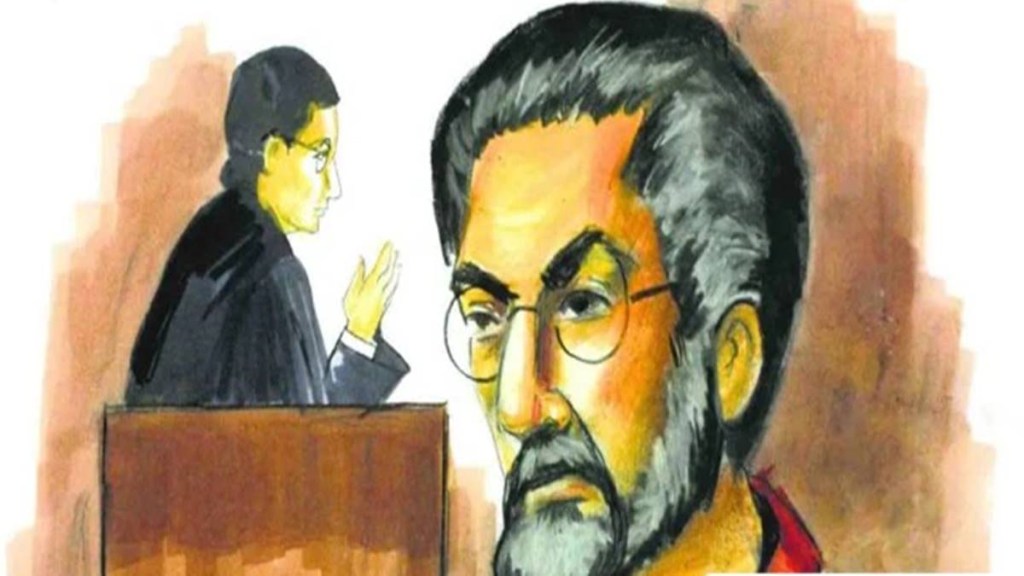The year 2025 could mark a significant milestone in the fight for justice for the victims of the 2008 Mumbai terror attacks. Pakistani-origin Canadian businessman Tahawwur Hussain Rana, a central figure in the attacks, is set to be extradited to India to face charges. Following the green light from a US court in August 2024, efforts to bring Rana to India have entered their final stages, with diplomatic channels now being activated.
Extradition Approved: A Long-Awaited Step
In a landmark ruling, the US District Court approved Rana’s extradition to India under the India-US extradition treaty. This decision, made after years of legal wrangling, is seen as a major step toward holding accountable one of the key figures behind the tragic events of 26/11. While Rana had filed an appeal against the decision, it was dismissed by the court, which reaffirmed that he should be sent to India to face trial.
Rana’s extradition has been a complex and lengthy process, but it is now clear that the legal obstacles have been overcome. With this approval, Rana’s return to India is imminent, ensuring that his involvement in one of the deadliest terror attacks in recent history will be thoroughly addressed in an Indian court.
The Key Role of Tahawwur Rana in the Mumbai Attacks
Tahawwur Rana’s involvement in the Mumbai terror attacks was not limited to being a bystander. He played an active and pivotal role in aiding David Coleman Headley, one of the chief masterminds behind the attack. Rana and Headley, both long-time associates, collaborated extensively before the attacks. Rana is believed to have helped Headley conduct surveillance in Mumbai by facilitating a fake business venture that allowed Headley to enter India on a tourist visa. This fake business cover was designed to hide Headley’s true intentions: scouting locations for the deadly assault on India’s financial capital.
Rana’s role went beyond logistics. As detailed in India’s charge sheet, he was fully aware of the attack plans and even travelled to Mumbai shortly before the assault. Rana stayed in a hotel in Powai between November 11 and November 21, 2008 — just days before the terrorists launched their coordinated attack on multiple locations in Mumbai, including the iconic Taj Mahal Palace Hotel, Chabad House, and Leopold Café.
Links to Lashkar-e-Taiba and Pakistani Intelligence
Rana’s involvement in the Mumbai attacks is also tied to his connections with Lashkar-e-Taiba (LeT), the terror group responsible for executing the attack, and Pakistan’s intelligence agency, the ISI. According to Indian investigators, Rana was a member of both LeT and the ISI, which played a significant role in orchestrating the 26/11 carnage.
The charge sheet against Rana also reveals troubling communications between him and Headley, including emails where Headley sought contact information for Major Iqbal, a key figure in the ISI. Major Iqbal is believed to have directly assisted in planning the attacks, further implicating the Pakistani military and intelligence agencies in the plot.
The Impact of Extradition on the Fight Against Terrorism
Tahawwur Rana’s extradition will send a powerful message: terrorism, no matter how far-reaching its network or how long the delay in justice, will not go unpunished. His arrival in India to stand trial will not only bring closure to the victims and their families but also serve as a reminder of the international cooperation needed to combat terrorism.
Rana’s extradition highlights the importance of collaboration between nations in the fight against terror. It also strengthens the resolve to hold accountable those who orchestrate violence from the shadows, behind the guise of business or other legitimate activities.
What’s Next for Rana’s Trial in India?
While the legal process has made significant progress, the final step — his trial in India — remains crucial. If convicted, Rana could face severe penalties, bringing a long-overdue sense of justice for the families of the victims who endured unimaginable pain on that fateful night in 2008.
Additionally, the trial could uncover more details about the broader network of individuals and organizations involved in the attacks, offering further insights into the global terror network that planned and executed one of the deadliest attacks in recent history.
A Victory for Justice
As Tahawwur Rana’s extradition draws nearer, the victims of the 26/11 attacks are one step closer to seeing justice served. The legal battles that have spanned over a decade are finally yielding results, and this crucial moment in the fight against terrorism shows the resilience of the Indian legal system and its international partners.
For the families of the 166 innocent victims, Rana’s extradition represents a long-awaited opportunity to confront the man who helped bring terror to their doorsteps. It is a victory not just for India, but for the global fight against terrorism.

